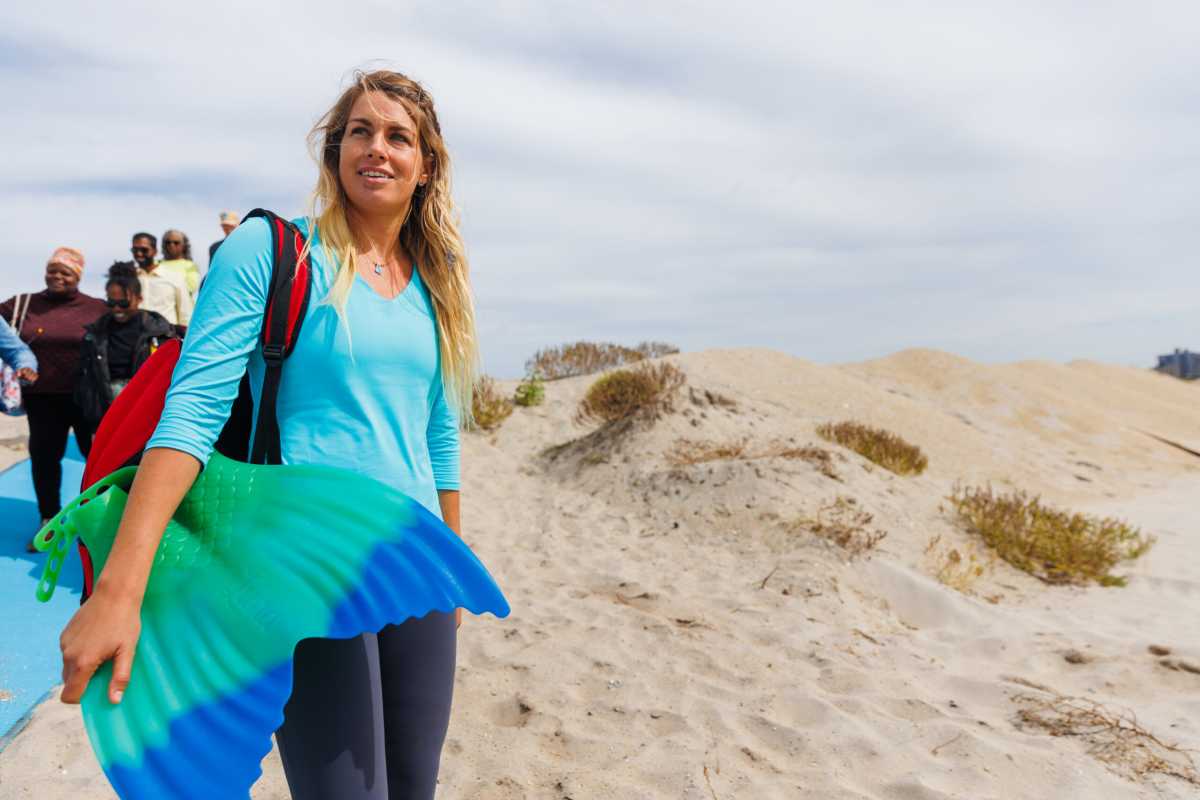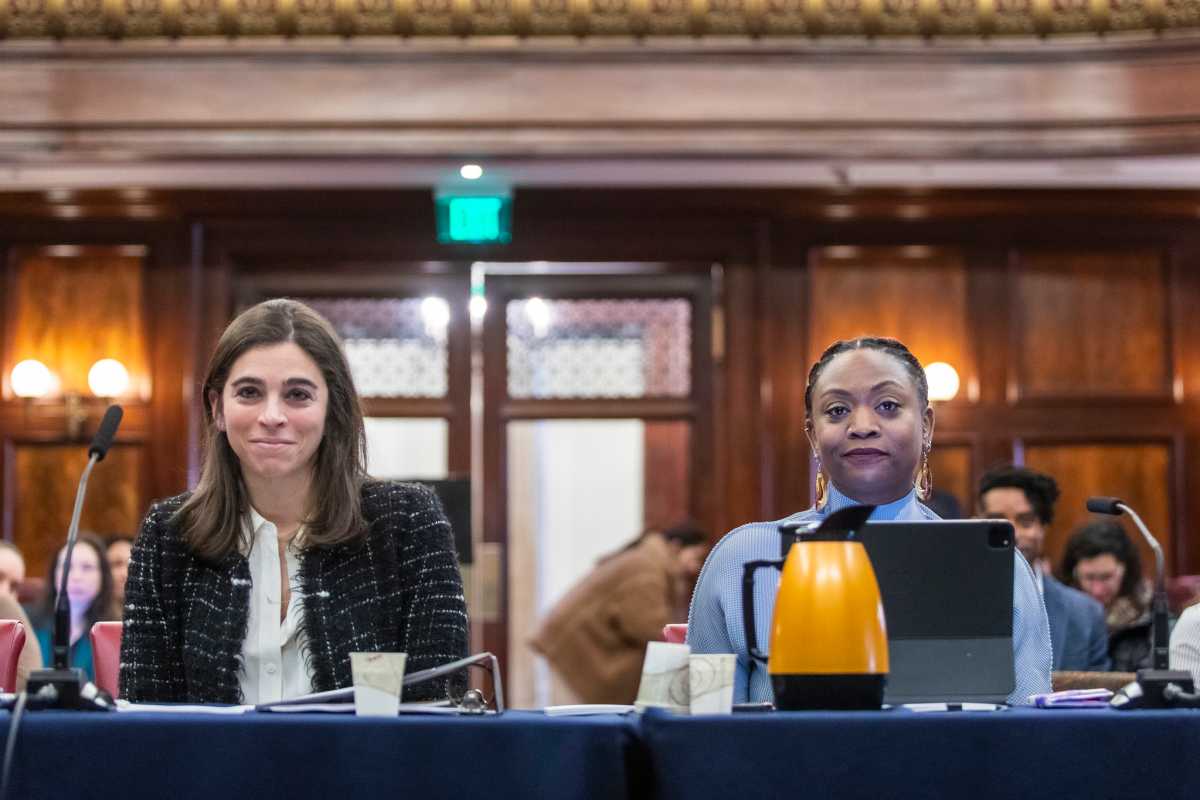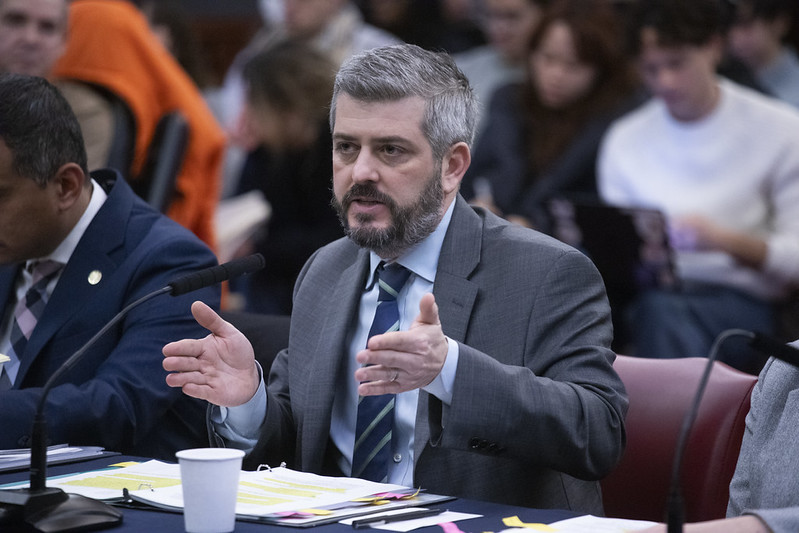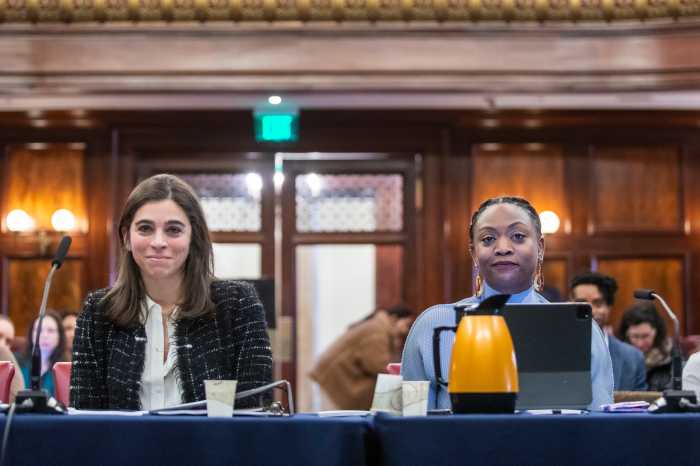In a prologue to Climate Week NYC, two Queens lawmakers joined the Swim Strong Foundation and the Water Safety Coalition at Beach 44th Street in Far Rockaway on Friday, Sept. 15, as they supported Guinness World Record holder Merle Liivand as she swam 330 meters with a monofin to bring attention to the United Nations’ sustainable development goals.
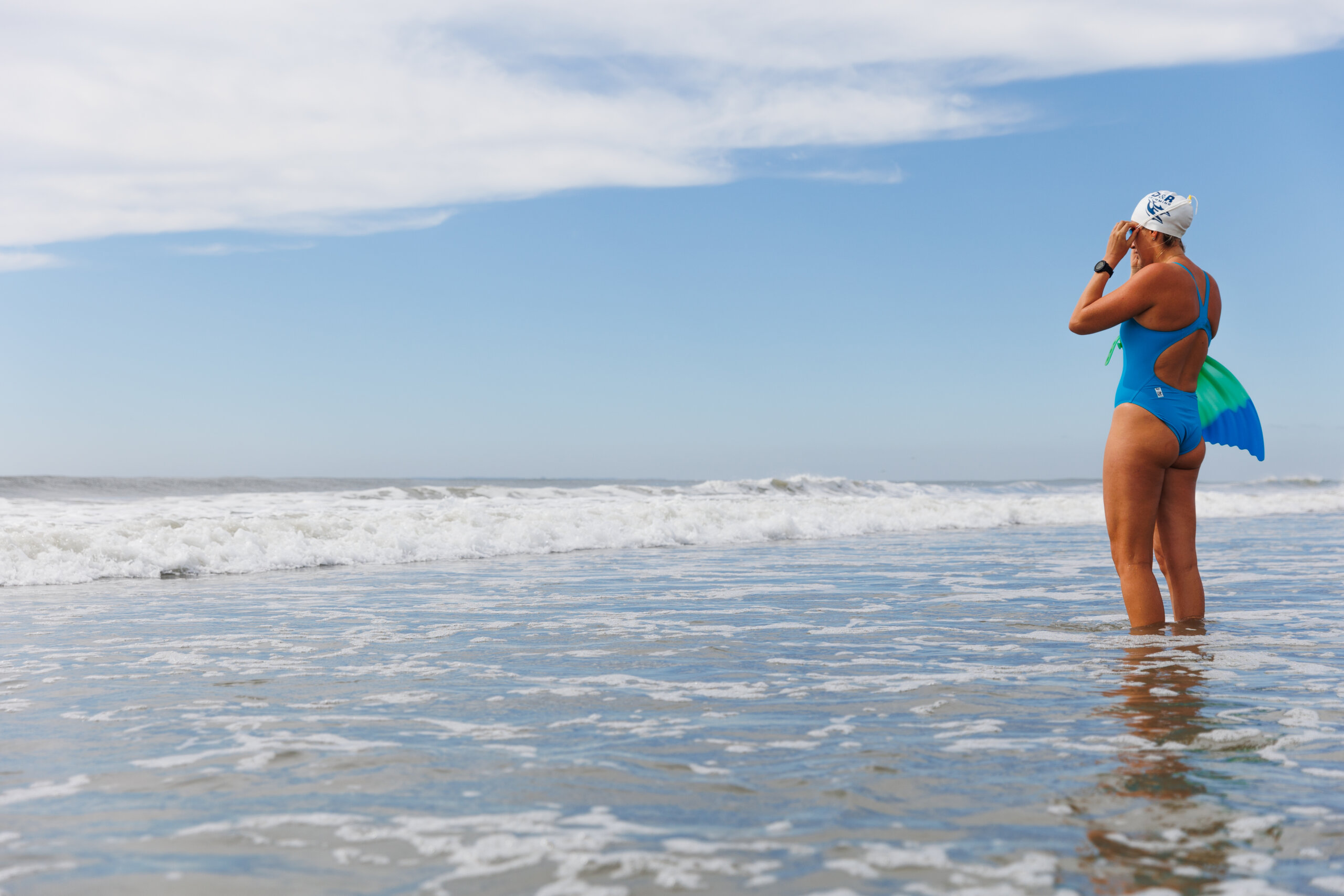
After passing landmark climate legislation on Sept. 14, Councilman Shekar Krishnan explained why Far Rockaway was the perfect location for the gathering.
“The climate crisis is at our doorstep, it is at our shoreline and if we don’t take urgent action to make New York City more sustainable, then the extreme heat, the torrential rains, the flooding that we unfortunately know all too well will continue and the city won’t be the sustainable place that it has to be for all of our communities and for all New Yorkers,” Krishnan said. “What is so meaningful about Merle’s swim is in addition to its timing, it is calling us to action, to keep in mind the U.N. initiative’s commitment to by 2030 ending poverty, protecting our planet and caring for our climate and the earth and I think those values frankly link to every other issue and crisis we face in our society.”
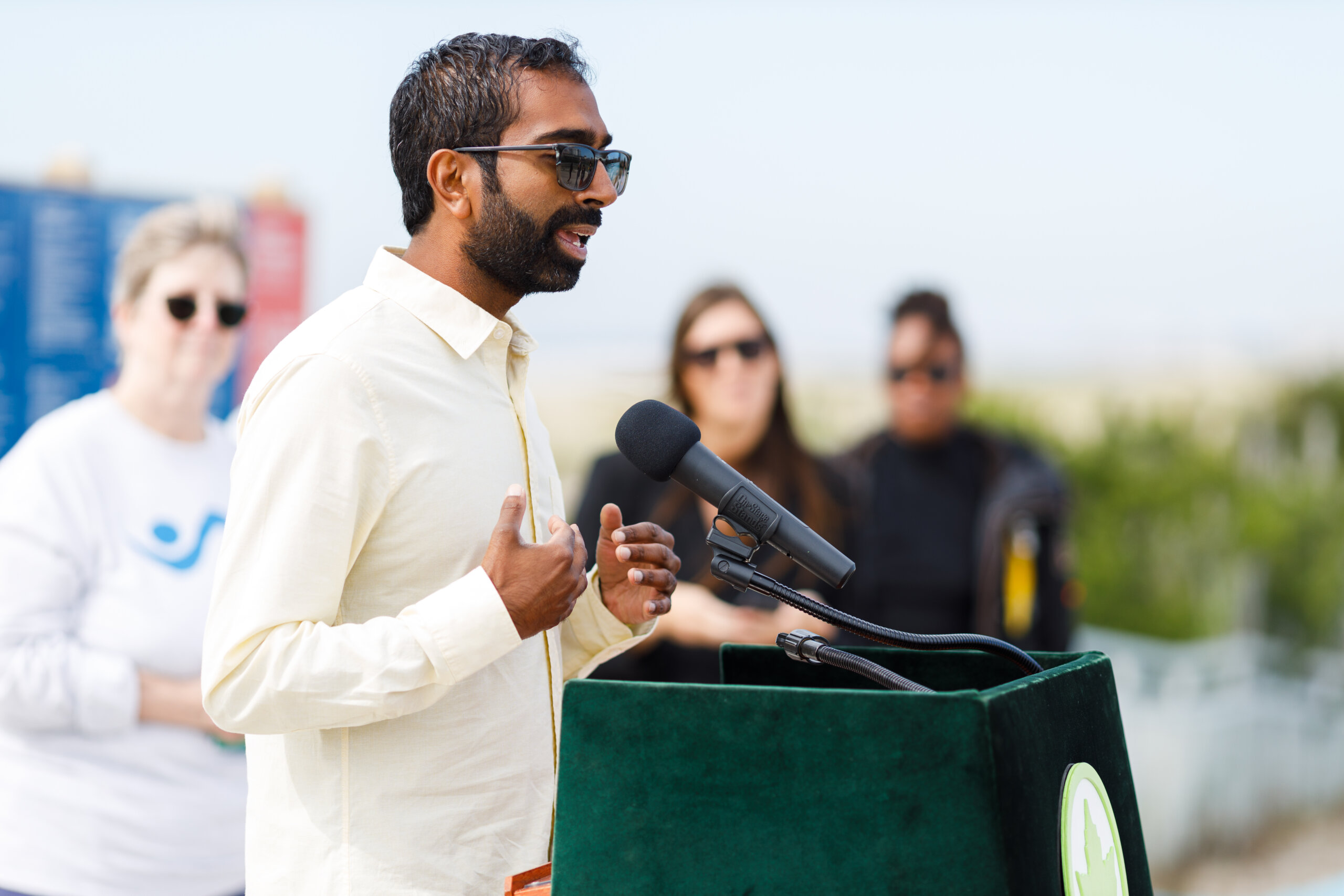
Woodside resident Shawn Slevin, who founded Swim Strong 17 years ago to teach the city’s youth about water safety, spoke about the urgency of rising tides due to climate change.
“There’s no better place than the Rockaways to show strength and resilience in terms of creating equitable opportunities for health, safety and recreation as it relates to how we interact with the water,” Slevin explained. “In the past I felt like I was a lone voice in the wilderness calling for change but now I’m part of a huge chorus not only demanding change but buying in to create it.”
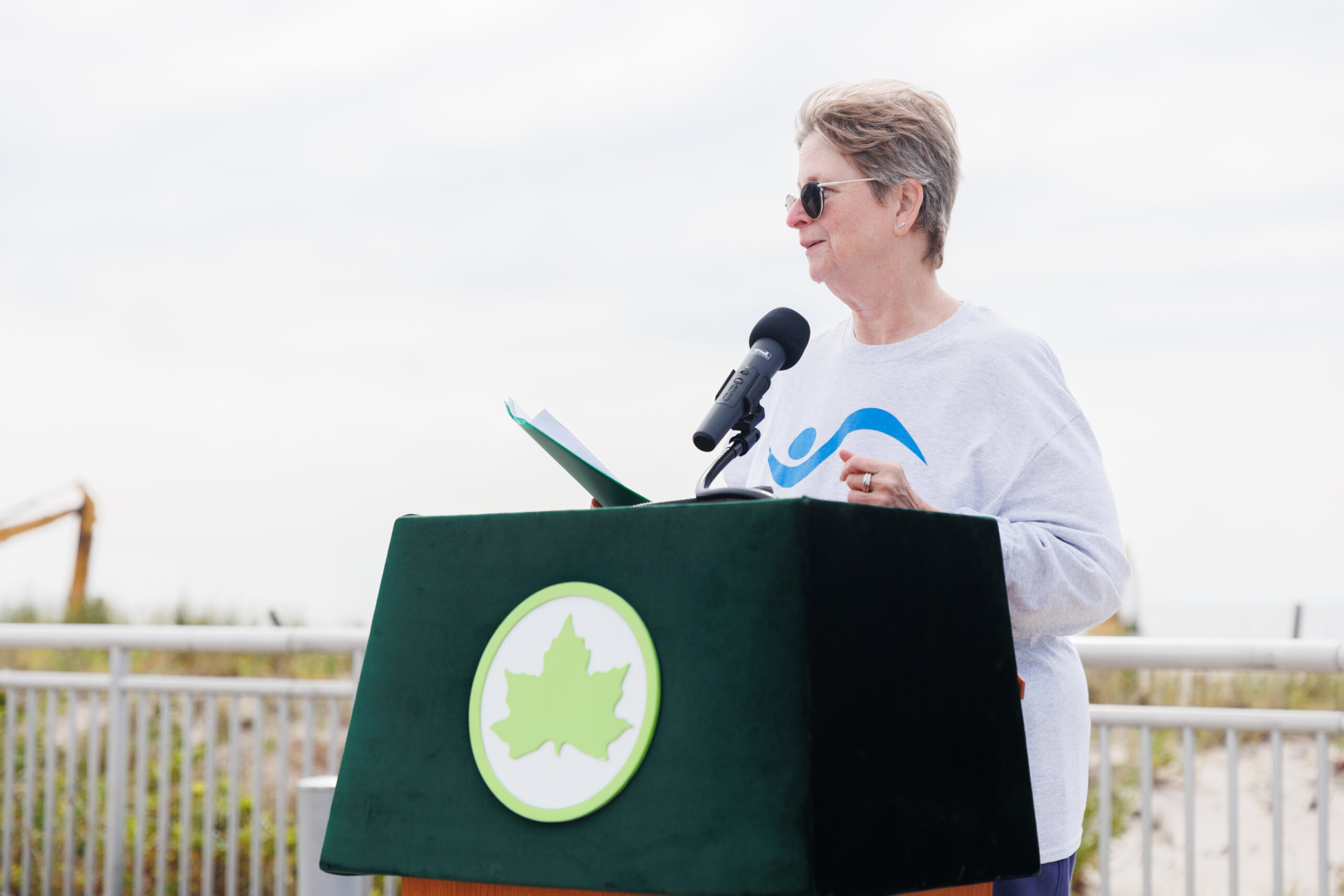
Liivand recalled how she was born in Estonia with an auto-immune disease that caused her lungs to collapse and while she was lying in her hospital bed staring at the ceiling she became inspired to overcome her condition. Now 32, she is an “eco-mermaid,” swimming great distances in a monofin.
Liivand set a new world record in April when she swam more than 31 miles around Miami’s Biscayne Bay in just over 14 hours hoping to inspire people to help change the world.
“I just read this morning that 33% of New York might be underwater by 2030, that’s 330 weeks away,” Liivand said. “Knowledge of water and strong swimming skills in the face of natural disasters — floods, wildfires and hurricanes — may help ensure survival. Governmental agreements and policies are not enough to reach the U.N.’s 2030 goals to make the planet healthier and more sustainable for future generations.”
Councilwoman Selvena Brooks-Powers, who represents the eastern end of the Rockaways, spoke of passing a package of bills the day before to improve water safety and equitable access to swimming in the five boroughs.
“New York City is bound by water. We have 520 miles of coastline along the ocean, rivers, bays and inlets, which is more than Miami, Boston, Los Angeles and San Francisco combined,” she said. “Every New Yorker should have the opportunity to swim, not only to enjoy the city waters, but to protect themselves from danger. We must do better.”
As chair of the Committee on Parks and Recreation, Krishnan advanced four bills that were passed the day before that address water safety as well as Introduction 1066 , that requires the city to include trees and tree canopy in its long-term planning framework.
“The City Council passed landmark legislation that will bring more trees, more pools and more lifeguards, and free swim classes to New Yorkers,” Krishnan said. “The bills are a direct response to the urgency of the climate crisis as well as chronic disparities in tree cover and access to pools and life-saving aquatics. After a summer of extreme heat and wildfire smoke, crowded pools and lifeguard shortages, the legislation we passed today will make our City cooler, greener, and more resilient.”
Additional reporting by Paul Frangipane.

